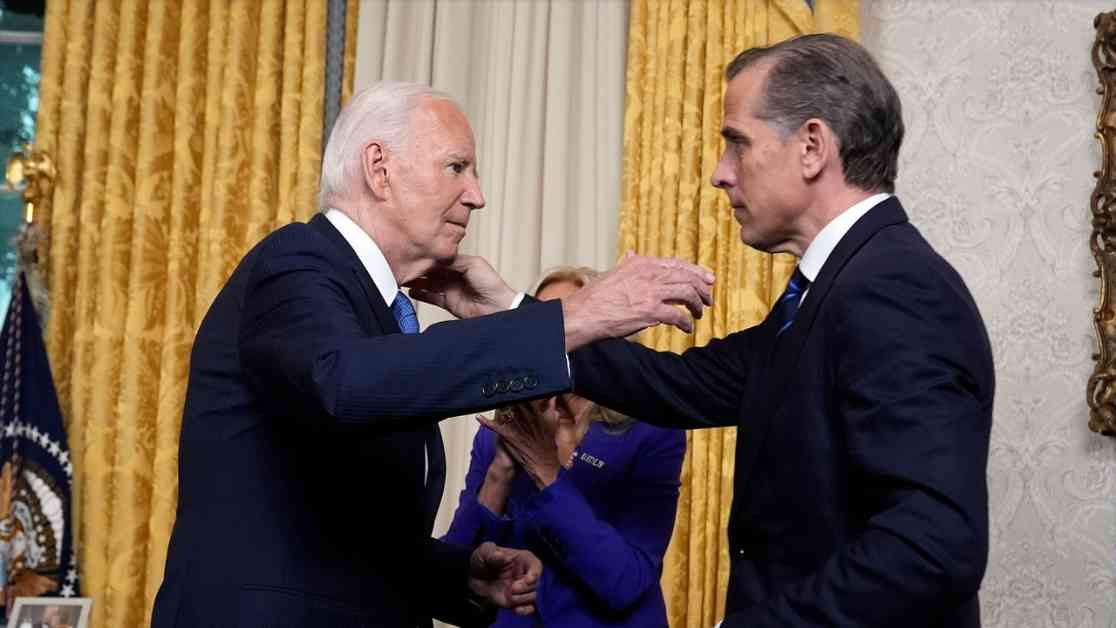Joe Biden, the 46th President of the United States, has recently made a controversial decision that has sent shockwaves through the nation. On Sunday night, Biden issued a pardon for his son, Hunter Biden, who was facing federal tax and gun charges. This move has sparked a fierce debate about whether Biden acted in the national interest or to protect his family.
The Pardon: A Father’s Love or Political Maneuver?
Many have rushed to defend Biden’s actions, arguing that any father would do the same to protect their child from a lengthy prison sentence. However, critics question whether Biden’s decision was influenced more by personal motivations than the greater good of the country. By pardoning his son, Biden has raised concerns about the integrity of his Presidency and his commitment to upholding democratic values.
Legal and Political Ramifications
Legal experts have differing opinions on the fairness of the charges brought against Hunter Biden. While some argue that the tax case has merit, others view the gun charges as rare and targeted. Biden himself has stated that the charges were brought selectively and unfairly, leading to a breakdown of a negotiated plea deal.
Impact on Biden’s Legacy
As Biden nears the end of his term, this controversial pardon may overshadow his many accomplishments as President. Some fear that this decision will define his legacy, casting a shadow over his years of service to the country. By prioritizing personal desires over his responsibilities, Biden has inadvertently paved the way for his political rivals to capitalize on his actions.
As the nation grapples with the implications of Biden’s pardon, one thing remains clear: the debate over whether this decision was an act of love or a political maneuver will continue to shape the narrative of his Presidency.












